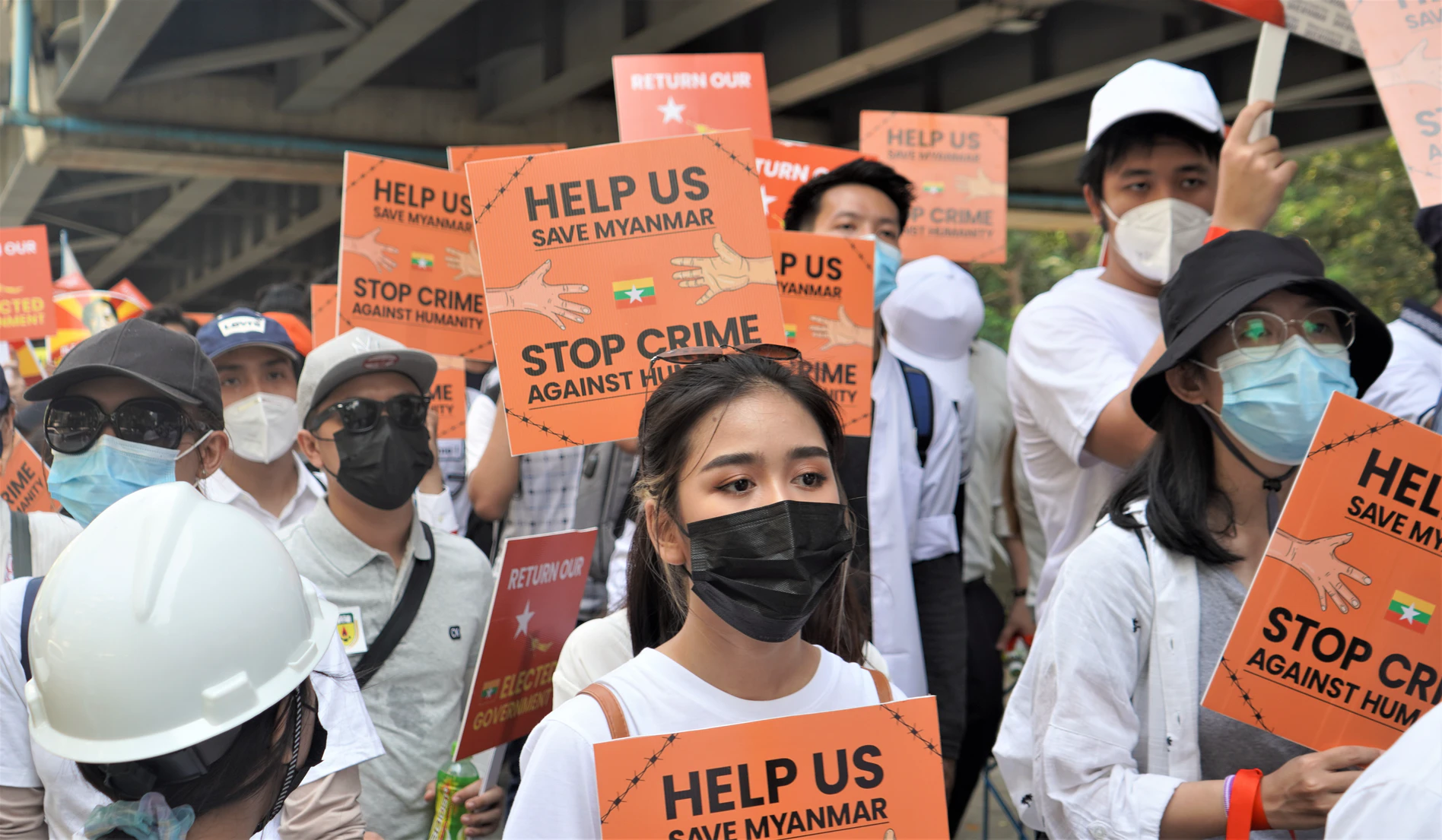By Verena Girschik & Htwe Htwe Thein
◦ 2 min read ◦
Foreign investors in Myanmar have come under increasingly intense pressure to cut ties with the Myanmar military since the military coup on 1st February 2021. Immediately after the coup, Japan’s Kirin Beer announced its decision to cut ties with its joint venture partner MEHL, i.e. the commercial arm of the military. However, fellow investors did not immediately follow Kirin’s withdrawal. Instead, they appeared to be treading water to rid out the storm.
Myanmar had been undergoing democratic transition since 2011, promising developments and luring investors’ interests as the last frontier of the Southeast Asian market. Indeed, the democratic transition had pathed the way for economic and developmental achievements, attracted investments in several sectors such as garment manufacturing. Yet then the military took back power, among others to secure its economic interests.
Governments and civil society in their home countries have been calling on companies to act responsible and not to do business with the military.
The pressure on companies who had been sourcing from Myanmar, including popular fashion brands like H&M and Bestseller, has been mounting. H&M and Bestseller did respond to the call and did suspend their orders from Myanmar before deciding to resume orders in May. Several foreign investors have withdrawn as the military’s attack on the civilians intensified and the international community stepped up their sanctions regime. The latest step was the refusal of the ASEAN not to invite the military leader Senior General Min Aung Hlaing to the summit in October 2021.
But is leaving the country really “the right thing to do”?
Companies who stay support the military in one way or another, for example by paying taxes directly to the military or paying rent or other fees to one of the military conglomerates (MEHL). Such payments from corporate investors provide a financial lifeline to the continuation of the military rule, hence, funding is a very important aspect of this dilemma for foreign investors and policy makers alike. The governments of the U.S., UK, Canada, the European Union have imposed sanctions targeting military interests. However, those sanctions so far have fallen short of targeting it where it would really hurt the military, in particular in the oil and gas sector that provides a lot of revenue. To weaken the military’s financial lifeline, the shadow government and activists have been calling for companies to stop all kinds of payments to the military. Inside the country, boycotts of military intestates have intensified. For instance, householders have been participating in an electricity bill boycott, thus using the withdrawal of this kind of support as a form of resistance. Not surprisingly, many companies have by now decided to pull out.
Yet while leaving the country ceases support to the military, it also entails that companies no longer provide goods and services (including essential services) and support to the workers and civil society (e.g. Telenor; Germany’s food retailer Metro. Companies have been supporting workers by sustaining safe workplaces, thereby securing workers’ incomes and stability. What is more, their support has enabled and sustained social movements. For example, women union leaders in the garment industry have been a driving force in anti-military protests.
Given the severity of human rights violations by the military, companies ought not to continue business as usual. Only by leaving can they cut all ties with the military and avert their complicity in atrocious human rights abuses. But by leaving, they also cease support to their most vulnerable stakeholders. The impact on the social contributions (via CSR) and Myanmar civil society, especially their workers, might be devastating.
About the Authors
Verena Girschik is Assistant Professor of CSR, Communication, and Organization at Copenhagen Business School (Denmark). She adopts a communicative institutionalist perspective to understand how companies negotiate their roles and responsibilities, how they perform them, and with what consequences. Empirically, she is interested in activism in and around multinational companies and in business–humanitarian collaboration. Her research has been published in the Journal of Management Studies, Human Relations, Business & Society, and Critical Perspectives on International Business. She’s on Twitter: @verenacph
Htwe Htwe Thein is an Associate Professor in International Business at Curtin University, Australia. She is internationally known for her work on business and foreign investment in Myanmar and has published in leading journals including Journal of World Business, Journal of Industrial Relations, Journal of Contemporary Asia, International Journal of Cross-Cultural Management and Feminist Economics (and international publishers such as Cambridge University Press, Routledge and Sage). She is also well-known as a commentator in media and press on the Myanmar economy and developments since the military takeover on 1 February 2021.
